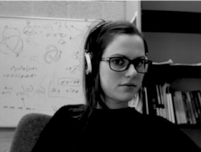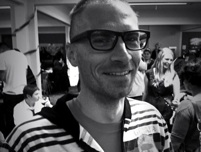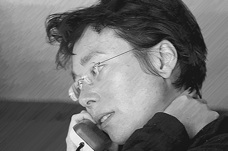Philosophy and Who we are

Our Philosophy
One of the most important features of the mathematical mind is the ability to see patterns and conjecture relationships; to distill essences, and to manipulate them in order to open new space and knowledge. The mathematical mind recognizes structure, creates structure, and plays with structure in dreams that can become reality.
We solve problems, and the toolbox of techniques available to us is the product of millennia of thinking.
The mathematical mind is intrinsically innovative, incessantly pushing the boundaries of thought, knowledge, and rational experience. Today, mathematicians create the languages and frameworks in which science speaks and society breathes. We provide an access point to the greatest mysteries -- infinity, negative dimensions, randomness, time and process -- and enfold it within human knowledge, parsing it with precision and an unparalleled degree of certainty. We are curious, creative, and imaginative and thus we trigger breakthroughs and expand horizons.
We are mathematicians and philosophers of mathematics, and we want to help you.
Whatever may your question, problem, or passion be, if it is embedded in a rational space then it can be interpreted in the language of mathematics. If it can be approached with a rational mind, then it can be understood with the mathematical mind.
Who we are
Silvia de Toffoli Alexandra Van Quynh Luke Wolcott
Silvia de Toffoli has a Ph.D. in mathematics from the Technische Universität Berlin. Her field of expertise is knot theory, a branch of topology. She is also active in philosophy, being involved in an interdisciplinary project about visualization and diagrammatic reasoning.
Abstract patterns always fascinated her, and she was driven to understand them through the language of mathematics, appreciating at the same time their aesthetic value--also through collaborations with artists.
The interdisciplinary profile she has makes her able to recognize hidden connections between different problems as well as to interpret the same one in possibly unconventional ways. Her abilities include abstraction, visualization and systematization. Moreover, she has good organization skills. Her natural enthusiasm and curiosity lead her to explore various realms, theoretical as well as practical ones, and make her very eclectic.
She speaks Italian, English, French, German and a bit of Spanish, and is currently based in Berlin. Her academic website: http://page.math.tu-berlin.de/~toffoli/.
~
Alexandra Van-Quynh has a Ph.D. in fundamental physics, and after eight years of investigations in various fields of physics, she joined the Centre for Philosophy of Science at the University of Lisbon. Her current research topic is the phenomenology of the intuitive experience in mathematics. This work allows her to prepare a new Ph.D. in philosophy of science at the École Polytechnique of Paris. Alexandra is also carrying out a research project with Luke Wolcott on apprehension of mathematical objects.
She has an extensive teaching experience and is accustomed to organized interdisciplinary events where apparently unconnected fields can meet. She always gives priority to dialog and constructive atmospheres.
Aside from this, Alexandra is a yoga instructor and has extensive knowledge of NLP (neuro-linguistic programming) -- she has become an expert in feelings elicitation and in identifying problems in complex psychological and environmental situations.
Alexandra lives in Lisbon and speaks French, English, Portuguese, and a bit of German and Russian.
~
Luke Wolcott received his mathematics PhD from the University of Washington in 2012. His mathematical expertise is, broadly, algebra and topology. Almost every day he works in the most abstract mathematical field, category theory -- a meta-language of mathematics that works directly with the essence of relationship and existence.
Thus he has a special ability to: systematize, abstract, and generalize. His mathematical training has particularly heightened his imagination, curiosity, and flexibility. Furthermore, he uses his years of training in Buddhist meditation to infuse his projects with self-awareness, meta-analysis, and integrality.
Luke speaks only English, and currently lives in Berlin. For more information, his websites are forthelukeofmath.com (for mathematics) and daikonpickle.com (for non-mathematics).


